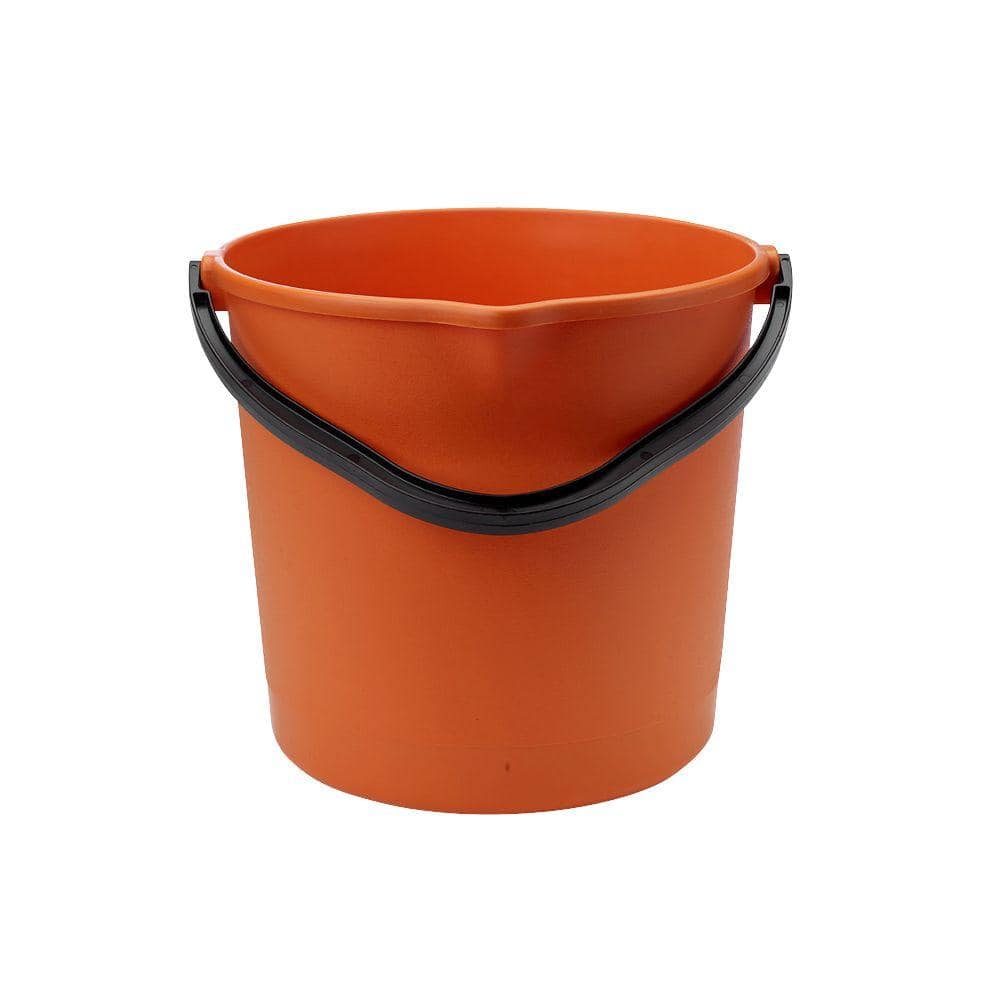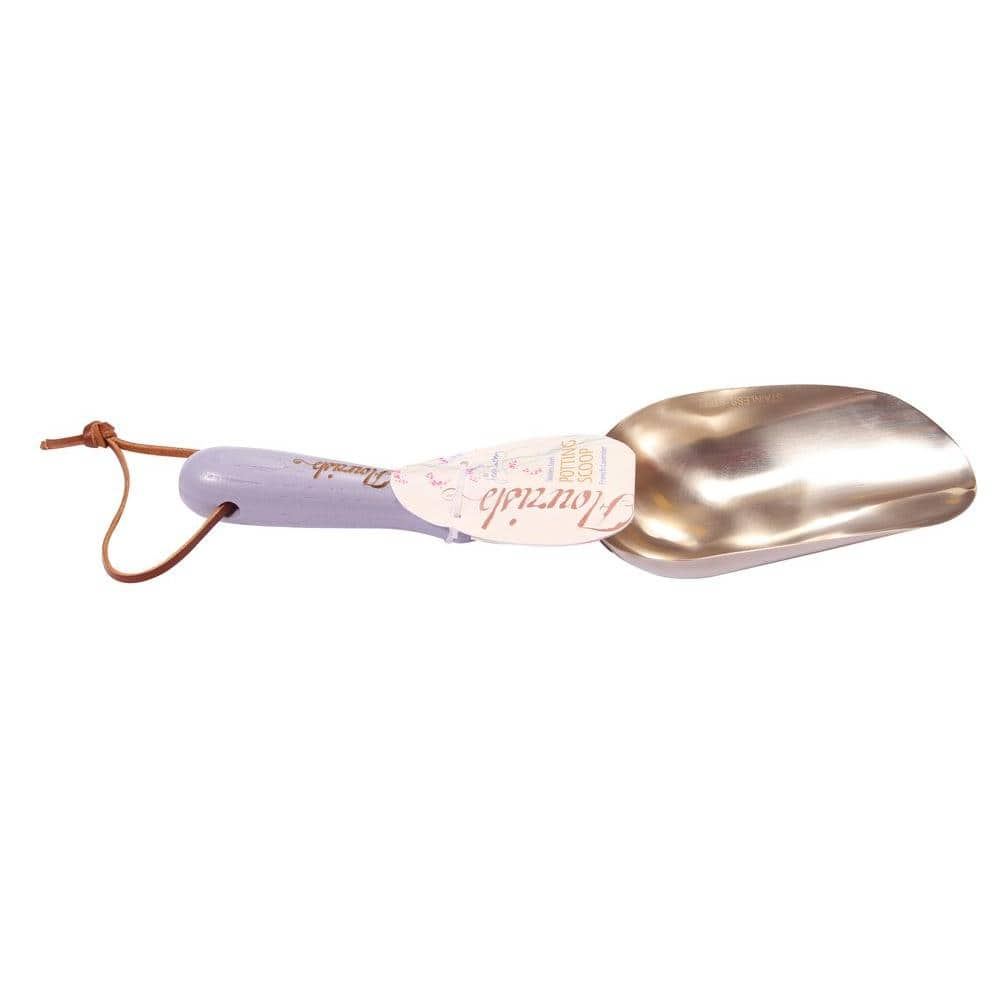How to Fight Powdery Mildew in Your Garden
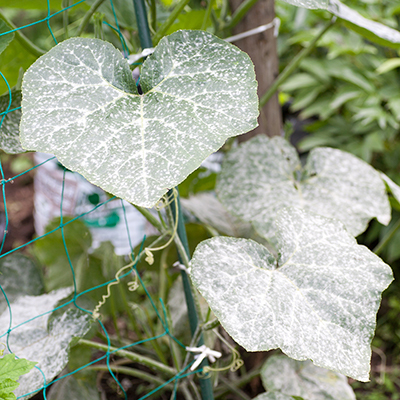
Last updated September 7, 2023
Your vegetables, flowers, ornamental trees and shrubs all have one enemy in common – powdery mildew. A widespread and easily identifiable plant disease, powdery mildew appears as white to grayish spots on leaves, especially after warm and humid nights. It can slow down growth and, in extreme cases, kill plants.
Don’t worry if you find powdery mildew on your plants or trees; there are several ways to limit the damage. Plus, different strains of powdery mildew infect different plants, so the disease cannot spread from your tomatoes to your zinnias. Learn more about fighting this fungus.
Table of Contents
Prune Branches or Stems
Water Early in the Day
Spray Solutions
Prune Branches or Stems
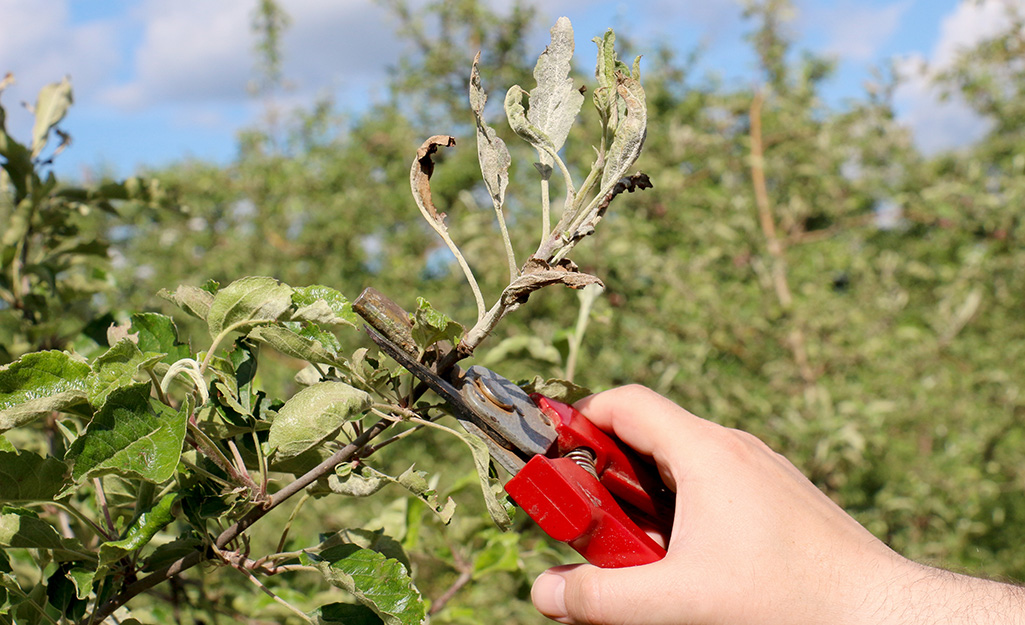
The first step is to prune infected branches to reduce the number of spores present and improve air circulation around the plants. Use a sharp pair of pruners or snips and wipe them down frequently with an alcohol-based wipe or antibacterial spray to avoid transferring the disease to healthy plants.
Water Early in the Day
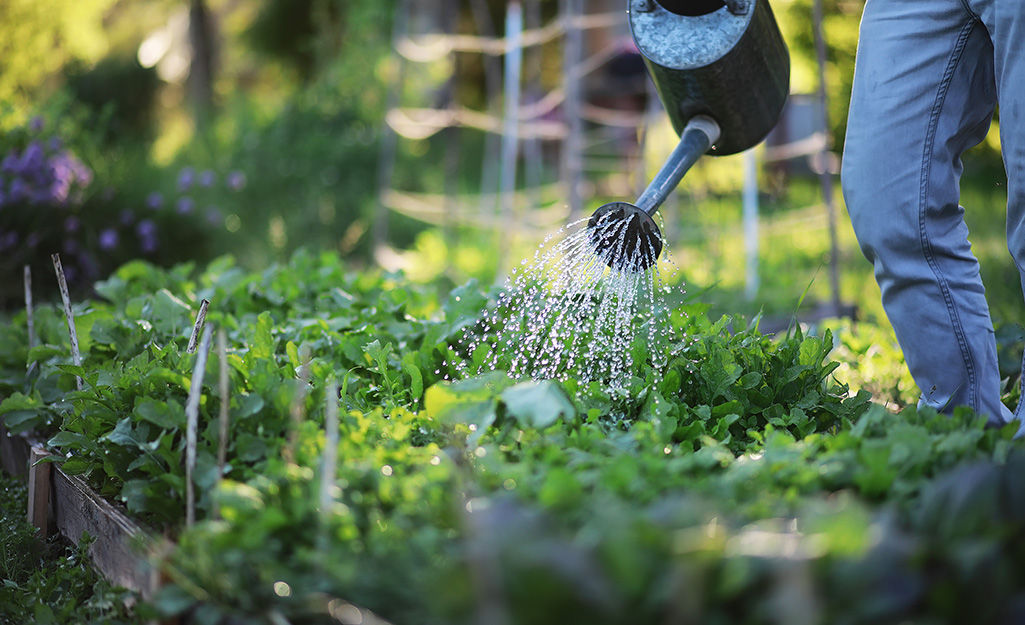
To prevent powdery mildew in the first place, water your garden during the early morning hours using an adjustable nozzle. If you see powdery mildew, wash down infected plants with a strong spray of water. Many spores will be washed to the ground where they can do no harm.
Spray Solutions
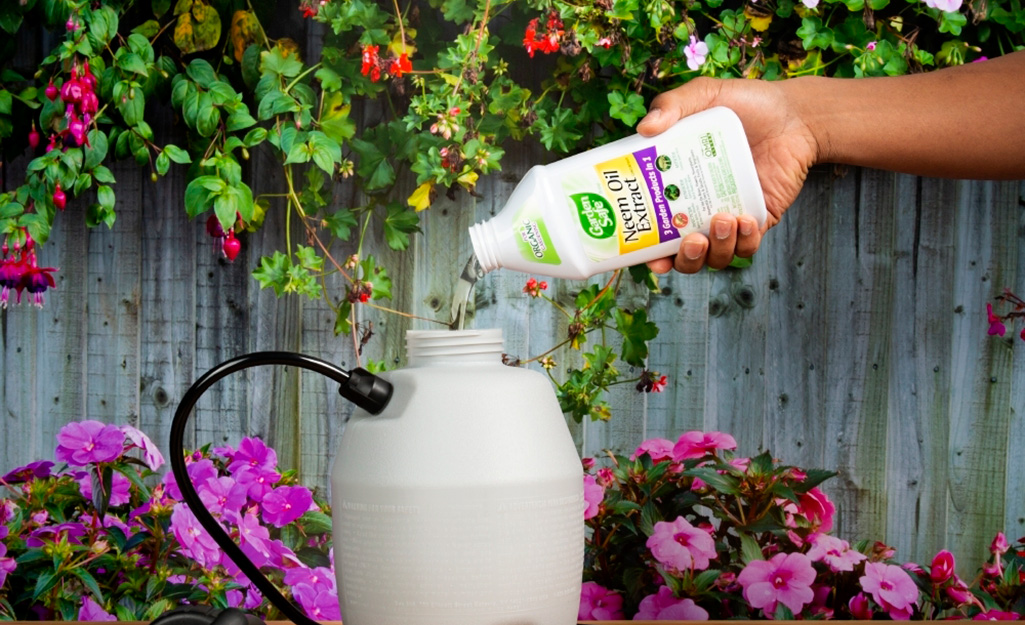
You can make a milk solution to prevent the spread of powdery mildew. Mix one cup milk with four cups water and spray on both sides of leaves on a cloudy day.
Alternatively, make a baking soda solution to make leaf surfaces inhospitable to powdery mildew. Mix one tablespoon of baking soda, and one teaspoon of cooking oil and liquid dishwashing soap in a gallon of warm water. Shake well. Spray plants with this mixture every seven to 10 days to prevent powdery mildew on susceptible plants.
You can also use ready-made powdery mildew solutions that are easy to mix and apply. No matter the solution you use, be sure to discard any unused solution and to properly store garden chemicals.
Remember to avoid fertilizing troubled plants until mildew has cleared. Tender new growth can quickly fall prey to powdery mildew fungi.
Summer's hot and humid weather can lead to powdery mildew on your garden plants. Squash is especially susceptible. Good news is that it's a very treatable problem. Try homemade treatments or solutions in the Garden Center. Whether you need the right garden tools or solutions, The Home Depot delivers
online orders
when and where you need them.
